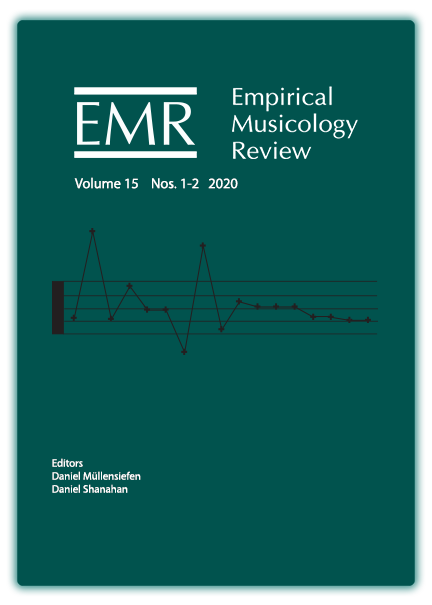Singing and Accompaniment Support the Processing of Song Lyrics and Change the Lyrics' Meaning
DOI:
https://doi.org/10.18061/emr.v15i1-2.6863Keywords:
Music & language, attention, education, emotion, accompanimentAbstract
A growing body of evidence indicates that music can support the processing of language. Some of its beneficial effects may even occur after one exposure. Accompaniment can also have an impact: in a-cappella singing, silences and out-of-key notes may confuse listeners, while accompaniment avoids silences and elucidates both rhythm and harmony, thereby supporting music-processing and concentration. These hypotheses were tested in two experiments. In a classroom setting, 271 pupils (M = 15.7 years old, SD = 0.9), listened to five out of 24 tracks (four songs in six different conditions) and completed a questionnaire after each one. As expected, the instrumental interludes between sung or spoken phrases in accompanied versions were rated less distracting than the silences that replace them in unaccompanied ones. Furthermore, perceived arousal, emotion, valence, and purity of singing were rated more positively in accompanied versions. Singing, on the other hand, supports the perceived intelligibility and comprehensibility of the lyrics. Finally, the music makes repetitions of words and phrases more meaningful and changes the lyrics' emotional meaning, wereby some aspects of sadness are associated with negative affect while other aspects of sadness are associated with positive affect. These results were by and large replicated in a better randomized laboratory experiment among 24 adults (M = 24.4; SD = 4.8).Published
How to Cite
Issue
Section
License
Copyright (c) 2020 Yke Schotanus

This work is licensed under a Creative Commons Attribution-NonCommercial 4.0 International License.


